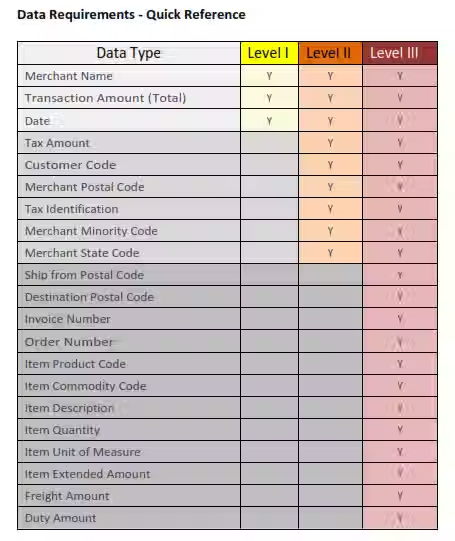How to Get a Professional Merchant Account Quote: A Comprehensive Analysis for Business Owners
- merchantstatement
- Apr 5, 2025
- 4 min read
Updated: Jul 6, 2025
In the dynamic landscape of business, mastering financial transactions is crucial for achieving lasting success. One of the key elements in this process is choosing the ideal merchant account provider. The journey begins with acquiring a professional merchant account quote. This guide will walk you through the essential steps to obtain a clear, comprehensive quote specifically tailored for your business.
Understanding Merchant Accounts
Before diving into how to get a quote, it’s important to understand what a merchant account is. A merchant account is a special bank account that allows businesses to accept payments via credit and debit cards. It acts as a bridge, holding the funds from card transactions until they are transferred to your main business bank account.
Understanding this concept is vital. Different merchant account providers may offer various rates, fees, and services. For instance, some providers may charge a flat fee of 2.5% per transaction, while others might have a tiered structure where lower volumes incur higher rates. A well-structured quote can help you choose the best option for your financial strategy.
Researching Merchant Account Providers
The first step in obtaining a professional merchant account quote is to research various providers. Not every provider suits every type of business. Investigate multiple companies' offerings, concentrating on their reputation and the services they provide.
Key Criteria to Investigate:
Reviews and Testimonials: Look for feedback on platforms like Trustpilot or Google Reviews. Positive experiences from businesses similar to yours can guide your choice.
Cost Structure: Familiarize yourself with different pricing models. For example, interchange-plus pricing can lead to lower costs if your transaction volume is high.
Customer Support: Quality support is essential for addressing transaction issues. Check if support is available 24/7 and read customer feedback to assess responsiveness.
Determining Your Needs
Once you have researched potential providers, the next step is to outline your specific business needs. This step helps you create a more relevant quote request.
Factors to Consider:
Transaction Volume: Estimate how many transactions you handle monthly. Higher volumes often lead to lower rates. For example, businesses processing over $50,000 monthly might negotiate rates as low as 1.8%.
Types of Payments: Identify if you only need card payments or additional options like mobile wallets, which are increasingly popular, representing about 25% of online transactions in recent years.
Integration Requirements: If you use a specific point-of-sale (POS) system, check if the provider can integrate with it smoothly to avoid disruptions.
Growth Plans: If you aim to expand, select providers offering packages that can scale, allowing you to manage increased transaction volumes without switching services.
Requesting the Quote
With a solid understanding of your needs and potential providers, it's time to request quotes. When reaching out to merchant account providers, provide comprehensive and precise information. This detail ensures you receive a tailored quote.
Include Key Details:
Business Type: Different industries may require distinct payment solutions. For instance, e-commerce businesses may need options for payment gateways and online security.
Average Sale Amount: Knowing this helps the provider assess your expected transaction fees accurately. For example, an average sale of $60 might affect the transaction fee structure.
Projected Growth: Inform the provider about anticipated increases in transaction volume based on historical data or market trends.
Comparing Quotes
Once you have received multiple merchant account quotes, it’s time to compare them. Focus on both the costs and service differences.
What to Focus On:
Setup Fees: Look for any initial setup costs associated with the merchant account. Some providers may charge up to $200 to set up your account while others may waive this fee.
Monthly Fees: Understand any ongoing monthly charges regardless of your transaction volume. This can vary from $10 to $50.
Transaction Fees: This is crucial as it can significantly impact your profits. Consider hidden fees as well, such as chargeback rates averaging around 1% of total transactions, which could erode your earnings.
Contract Terms: Check the length of contracts and any termination clauses. If your business model is likely to change, flexibility is key.

A calculator used for analyzing merchant account quotes.
Finalizing the Agreement
After thorough comparisons, you should be able to identify the merchant account provider that best suits your needs. Before finalizing the agreement, consider the following steps:
Negotiate Terms: Don’t be afraid to ask for better rates or terms. Many providers are willing to negotiate to win your business.
Review the Agreement: Carefully read the agreement to ensure you understand all fees and clauses that could affect your business.
Consult an Expert: If you're unsure about certain details, seek help from a financial advisor or experienced colleagues.
The Importance of Monitoring Your Account
Once you have secured a merchant account and started accepting payments, your responsibilities don't end there. Continuous monitoring of your account is crucial.
What to Monitor:
Review Statements: Regularly check your merchant statements for any discrepancies or unexpected charges.
Stay Informed on Rates: Keep informed about changes in pricing structures. Some providers may adjust fees annually, so staying updated can save you money.
Evaluate Your Needs: As your business expands, reassess whether your current merchant account still meets your requirements.
Effective Navigation for Success
Obtaining a professional merchant account quote doesn't have to be a daunting task. By conducting thorough research, identifying your unique business needs, and carefully comparing quotes, you can make informed decisions aligning with your financial goals.
The right merchant account can streamline your payment processing, enhance customer experience, and ultimately contribute to a healthier bottom line. Whether you are an experienced entrepreneur or a budding business owner, knowing how to navigate the merchant account landscape is vital for your success.




Comments